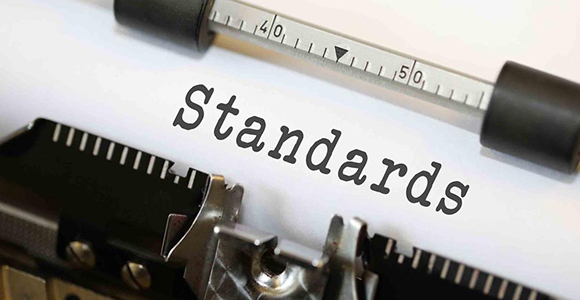Standards as Strategic Tools
How familiar are you with your industry's standards? Discover the benefits of using the expertise of your profession to establish benchmarks for best practice.

Standards Should Be A Central Component Of Any Strategy
Too often, many companies and business personnel overlook the significance of standards. Standards use the expertise of the industry and the profession to establish benchmarks for best practice. When properly implemented, optimization of resources (human and technological) is at the core of standards.

Standards
Do you recognize any of these logos? They belong to just a few of the standards organizations for our industry.
Standards are guidelines and processes that establish the "recommended" approach to a task or activity. Industries agree on standards relevant to their products and services, and these benchmarks evolve over time.
The World Standards Services Network (WSSN) functions as a clearinghouse for standards. It provides a more comprehensive definition of standard which reads: "[A standard is a] document, established by consensus and approved by a recognized body, that provides, for common and repeated use, rules, guidelines or characteristics for activities or their results, aimed at the achievement of the optimum degree of order in a given context."
How familiar are you with your industry's standards? There are many good benefits to employing them within your organization.
Benefit 1: Standards facilitate optimal products. |
When employees have standards to follow, they can focus on the task at hand. They can produce product instead of troubleshooting product. By implementing industry standards, they can use a process that has already been tested, refined, and known to yield results. Without standards, employees spend time solving recurring problems. Productivity falls.
Benefit 2: Standards promote participation, coherence and consensus. |
Incorporating a valid standard takes input, vertically and horizontally, within an organization. This can improve employee and interdepartmental relationships, because the process requires teamwork and consensus.
Benefit 3: Standards encourage ongoing evaluation and improvement. |
Standards are not meant to be a straitjacket approach to conducting business. Solid standards are flexible enough to grow with a company and its employees. Since standards stem from numerous real-world experiences, they naturally evolve with technology and employee ingenuity.
Benefit 4: Standards are rapidly becoming a necessity. |
In a marketplace that is increasingly global, standards can give a company competitive advantage. Employing standards can also increase a business's productivity and profitability.
Benefit 5: Standards are a strategic choice. |
Standards are not meant to be a straitjacket approach to conducting business. Solid standards are flexible enough to grow with a company and its employees. Since standards stem from numerous real-world experiences, they naturally evolve with technology and employee ingenuity. Your company has a choice regarding standards.
- You can ignore standards: Stratify the work environment and create a setting where employees busily invent and re-invent tasks and procedures within their limited sphere of influence. This lack of standards can be costly.
- Or, you can use standards to your fullest advantage: Openly assess your business activities, encouraging knowledge transfers among departments and supporting the development and implementation of applicable standards. Standards are a strategic choice.
Staying up to date in an industry that's constantly shifting isn't easy, which is all the more reason it's important to work hard to keep current on trends and standards within our industry. Doing so will help you identify opportunities for growth and give you a competitive edge.



